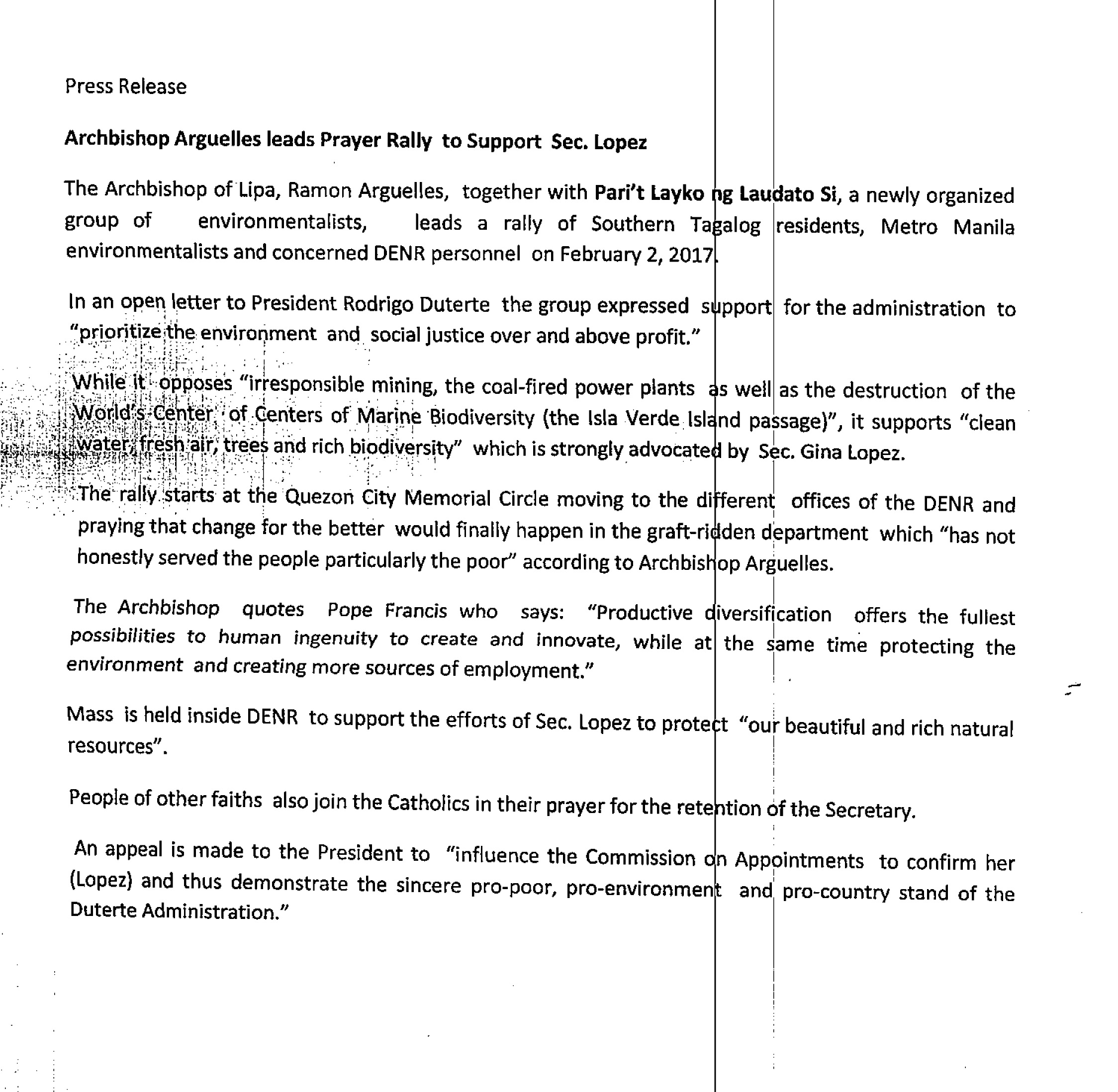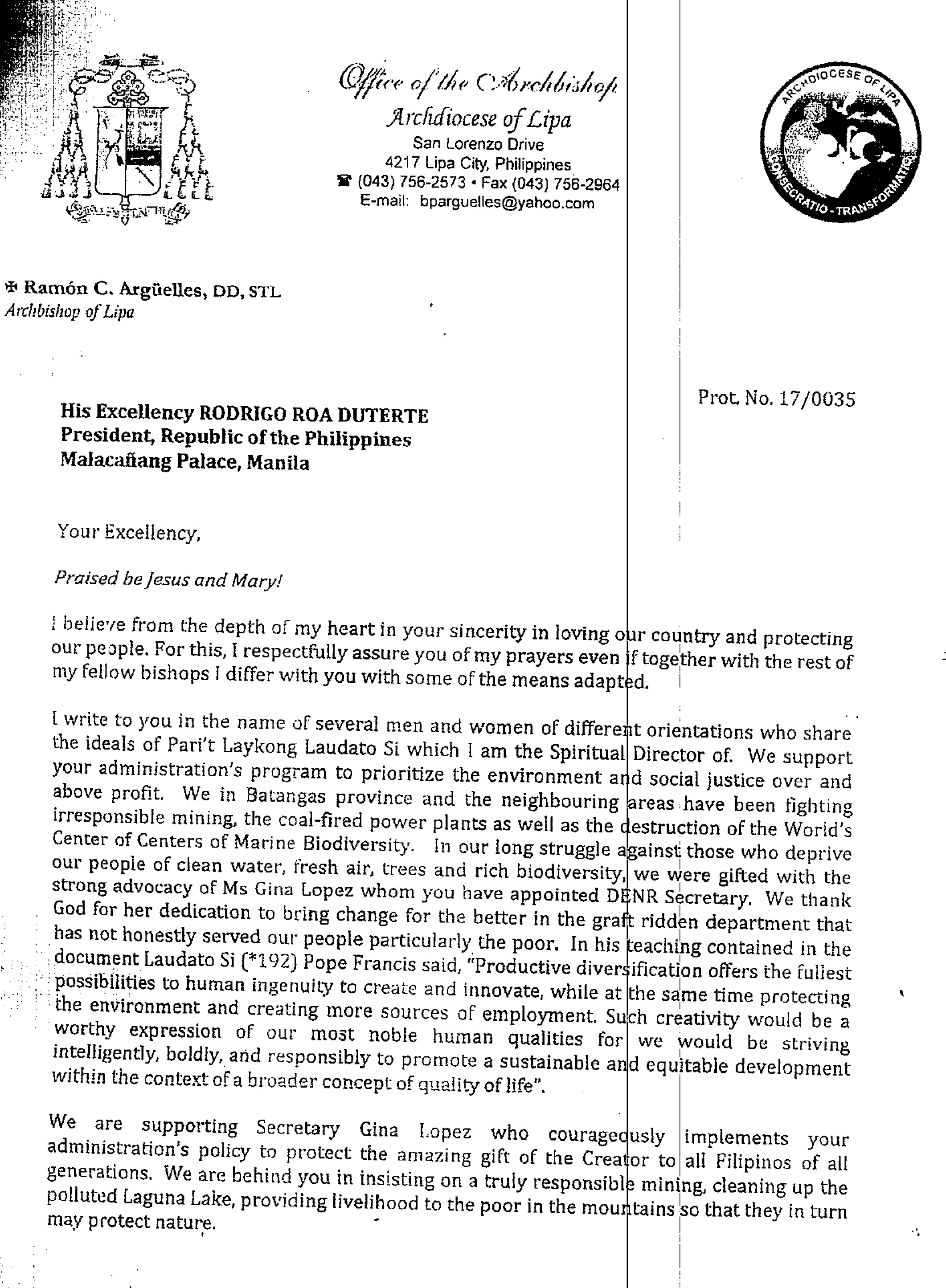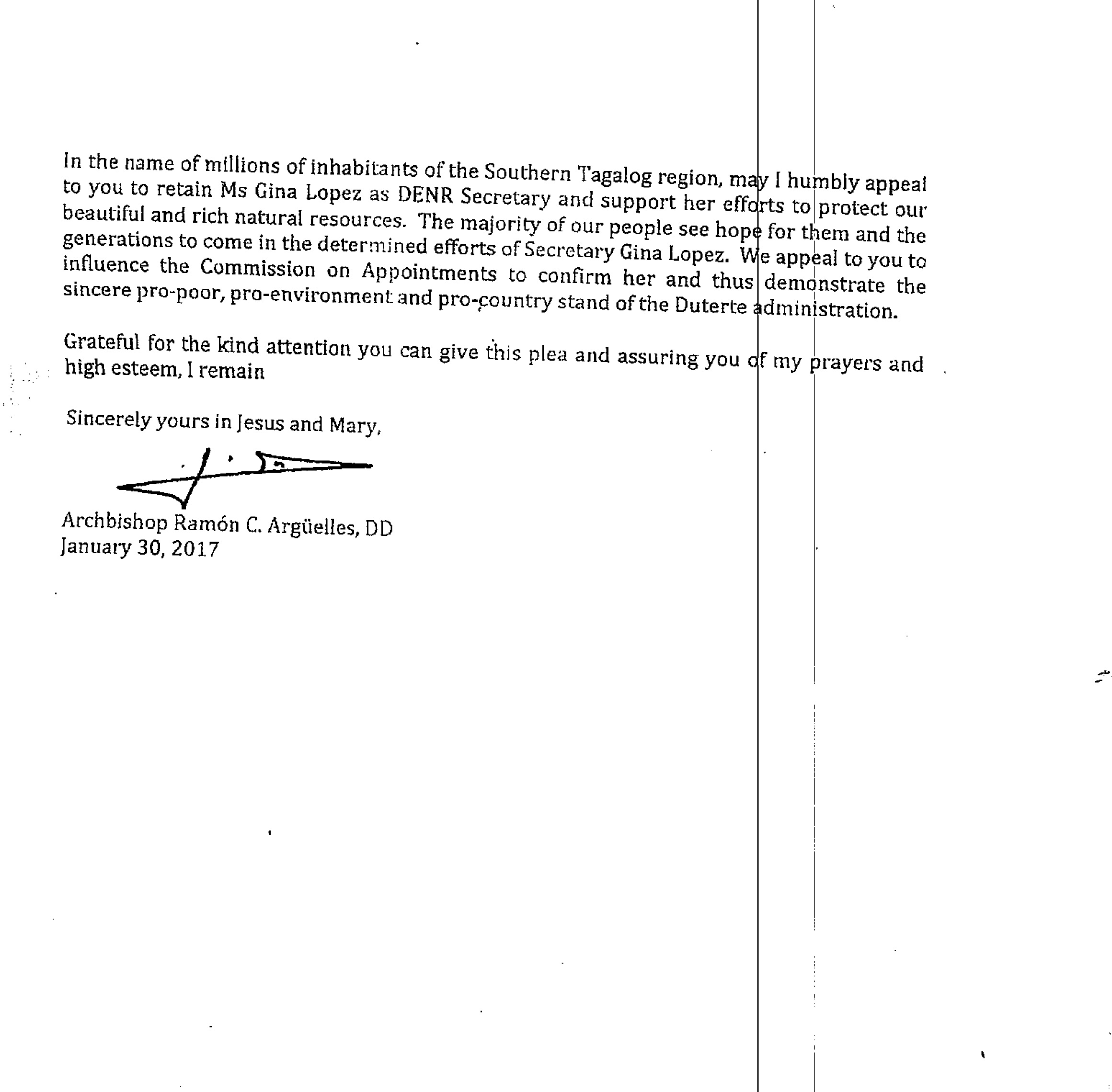DENR WELCOMES MICC MULTI-STAKEHOLDER REVIEW
The Department of Environment and Natural Resources (DENR) will work with the Mining Industry Coordinating Council (MICC) in the conduct of a multi-stakeholder review on the performance of existing mining operations in the country.
The council, co-chaired by Lopez and Finance Secretary Carlos Dominguez III, convened Thursday to address the issues on due process, unemployment and revenue loss for local and national government raised by mining groups against the closure and suspension orders issued to 28 mining companies by Lopez.
After the meeting, the council, pursuant to Executive Order (EO) 79, issued Resolution No. 6 which states that the “MICC shall create a multi-stakeholder review and advise the DENR on the performance of existing mining operations in consultation with local government units (LGUs)”.
The review will be based on the parameters set in specific mining contracts and on pertinent laws, “taking into account the valid exercise of the State’s police power to serve the common good, especially the poor.”
The resolution further states that “those found guilty of violating mining contracts, laws and regulations, after observance of due process, shall be meted the appropriate penalty under relevant laws.”
The resolution also indicated that those who will be affected by the suspension or closure order, either directly or indirectly employed by mining contractors, shall be assisted by the government through its livelihood and transition plan.
The MICC also agreed that no mining shall be allowed in watershed areas.
Executive Order 79 created the MICC to implement the Order and other industry reforms, conduct dialogue with stakeholders, and review all existing mining-related laws and rules.
The council is co-chaired by the chairpersons of the Climate Change Adaptation and Mitigation and the Economic Development clusters of the Cabinet. Other members are the Justice Secretary, the chairperson of the National Commission on Indigenous Peoples (NCIP) and the president of the Union of Local Authorities of the Philippines (ULAP).
Last week, Secretary Lopez has ordered the closure of 23 mining operations and suspended five more for various violations that resulted in the degradation of surrounding rivers and other water bodies, including agriculture, and affecting the health and livelihood of communities. ###
- Details
- Parent Category: News & Events
- Category: Press Releases
- Hits: 850





